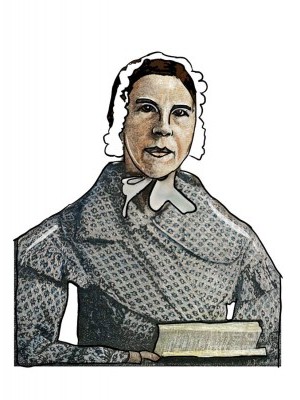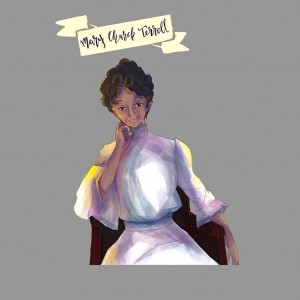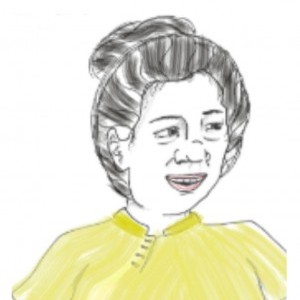Greta, Tanvil & Yael
Castilleja School | Palo Alto, CA | 8th
Historical Figure I Admire
Sarah Moore Grimké
Born in South Carolina to a wealthy family, Sarah Moore Grimké was a female suffragist during the early 1700s and through the Civil War. She was the 6th of 14 children and had a dream of becoming an attorney. At a young age, Sarah developed a strong connection with the slaves living on her family's plantation and began teaching Bible classes to the young slaves. She wished to teach them to read but that had been prohibited since 1740. In 1819, her father became very ill. She traveled with him as his nursemaid to Pennsylvania to visit a physician but shortly after their arrival, her father passed away. In Philadelphia, she met a man by the name of Israel Morris, who introduced her to Quakerism. In the 1820s, she moved to Philadelphia, Pennsylvania to become a Quaker. The Quakers believed in women's rights and anti-slavery. With her sister Angelina, she wrote several books about equal rights. Later on, they left the Quaker religion due to her sister's marriage to a non-Quaker. Starting in 1848, along with her sister, she began to teach. Sarah and her sister opened 2 schools and taught until 1862. They helped raise their African-American nephews and supported them through law school.
Along with fighting for women's rights, Grimké was also fighting for the fair treatment of African-Americans. Starting from a young age, she tried to give the enslaved people on her land some education. She tried to teach them to read and she read to them herself. However, she stopped when her father told her she could not teach them any longer. At the same time, she was seeking higher education from her brother, who was studying at Yale at the time, as she was not receiving anything past sewing and cooking. She wrote and spoke out against the mistreatment of African-Americans and the inequality that women faced. Her letters were printed in several well-known newspapers and later published as a book. Grimké was also the author of the first public argument which urged equality for women. She openly supported Abraham Lincoln and his ideals throughout the Civil War. In 1868 she became the vice president of Massachusetts’ Woman Suffrage Association. In the 1870s, she led a group of women in Boston to vote even though it was against the law. Along with her sister, Grimké became the first woman to speak to an important congressman in regard to the treatment of African-Americans. People who did not share her mindset burned her books and protested against her. Sarah Grimké died on December 23, 1873.
Many important modern-day women continue to quote her and use her work to support the continuing fight for complete equality. "I ask for no favor for my sex. All I ask of our brethren is that they take their feet off our necks." –Sarah Moore Grimké
What the Project Means to Me
Researching about Sarah Moore Grimké was an amazing way for us to learn more about our history as females in the United States and about African-American enslavement. It brought to our attention the struggles that women had to face in the past few centuries and the privileges that we have now that they never had. When we grow up we will be able to vote and this is a right they risked their lives for. Their opinions were suppressed and they didn't have any representation in the government, even though they still paid taxes. Their struggle, which we learned about, motivates us to continue this fight for complete equality for everyone.
The United States is a democratic republic and this means that everybody should get a voice in government actions, and at all levels: local, state and federal. Sarah Moore Grimké stood up against men and challenged the gender norms of her time. Her beliefs at the time were very modern and very strong and many people were appalled by her words and actions. This inspires us to pave our own path and to choose our own mindset instead of letting others choose it for us. Being a woman does not make you inferior to others and we don't need to conform to the ideals of society. We hope to one day make a difference for future generations of women as the ones before us did for us. We also wish to see how our future generation will exceed their goals and actions in life.
Explore the Archive
More From This Class
Click on the thumbnails below to view each student's work.Deadline Extended
There's still time to join Women Leading the Way.
Become a part of our storytelling archive. Enroll your class today.
Join the Project



